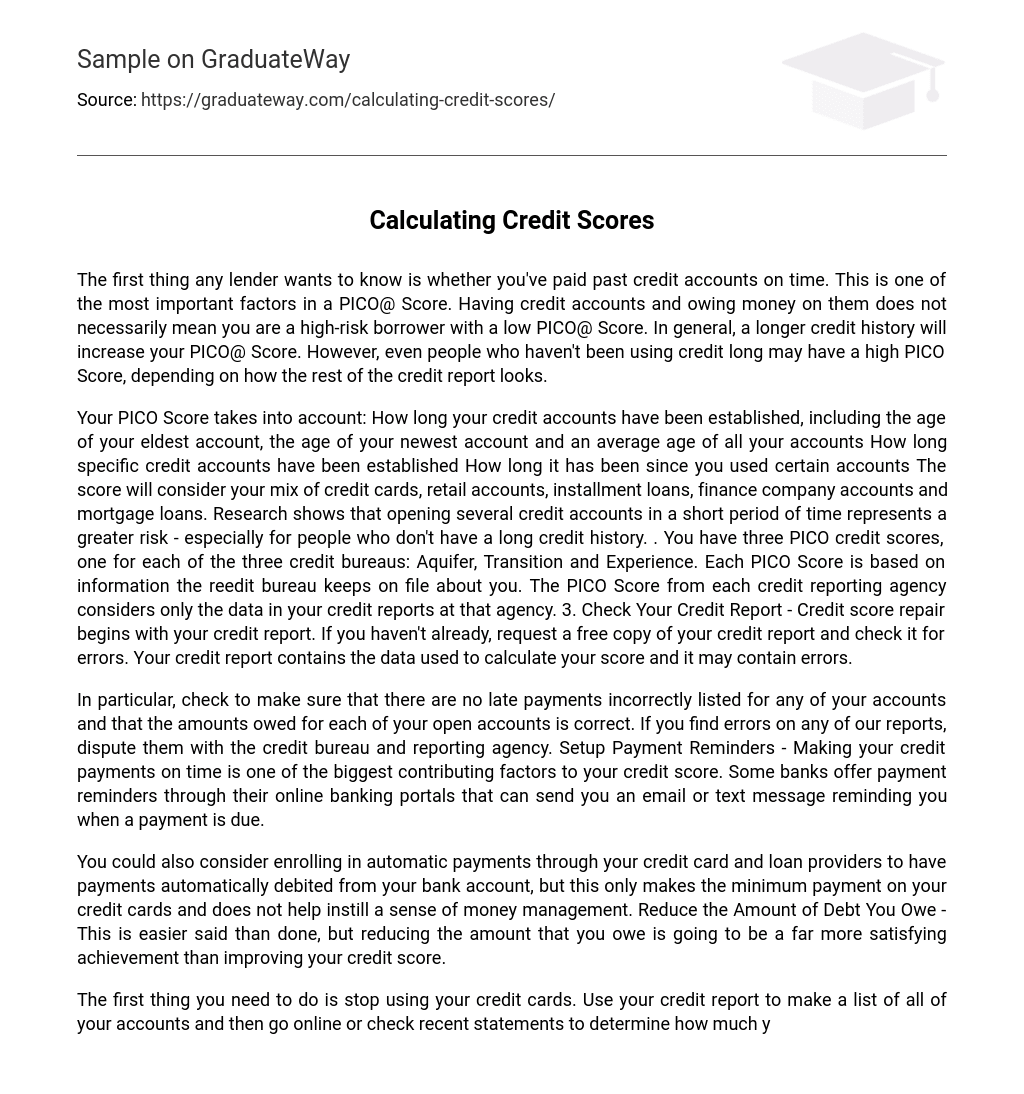The first thing any lender wants to know is whether you’ve paid past credit accounts on time. This is one of the most important factors in a PICO@ Score. Having credit accounts and owing money on them does not necessarily mean you are a high-risk borrower with a low PICO@ Score. In general, a longer credit history will increase your PICO@ Score. However, even people who haven’t been using credit long may have a high PICO Score, depending on how the rest of the credit report looks.
Your PICO Score takes into account: How long your credit accounts have been established, including the age of your eldest account, the age of your newest account and an average age of all your accounts How long specific credit accounts have been established How long it has been since you used certain accounts The score will consider your mix of credit cards, retail accounts, installment loans, finance company accounts and mortgage loans. Research shows that opening several credit accounts in a short period of time represents a greater risk – especially for people who don’t have a long credit history. . You have three PICO credit scores, one for each of the three credit bureaus: Aquifer, Transition and Experience. Each PICO Score is based on information the reedit bureau keeps on file about you. The PICO Score from each credit reporting agency considers only the data in your credit reports at that agency. 3. Check Your Credit Report – Credit score repair begins with your credit report. If you haven’t already, request a free copy of your credit report and check it for errors. Your credit report contains the data used to calculate your score and it may contain errors.
In particular, check to make sure that there are no late payments incorrectly listed for any of your accounts and that the amounts owed for each of your open accounts is correct. If you find errors on any of our reports, dispute them with the credit bureau and reporting agency. Setup Payment Reminders – Making your credit payments on time is one of the biggest contributing factors to your credit score. Some banks offer payment reminders through their online banking portals that can send you an email or text message reminding you when a payment is due.
You could also consider enrolling in automatic payments through your credit card and loan providers to have payments automatically debited from your bank account, but this only makes the minimum payment on your credit cards and does not help instill a sense of money management. Reduce the Amount of Debt You Owe – This is easier said than done, but reducing the amount that you owe is going to be a far more satisfying achievement than improving your credit score.
The first thing you need to do is stop using your credit cards. Use your credit report to make a list of all of your accounts and then go online or check recent statements to determine how much you owe on each account and what interest rate they are charging you. Come up with a payment plan that puts most of your available budget for debt payments towards the highest interest cards first, while maintaining minimum payments on your other accounts.





